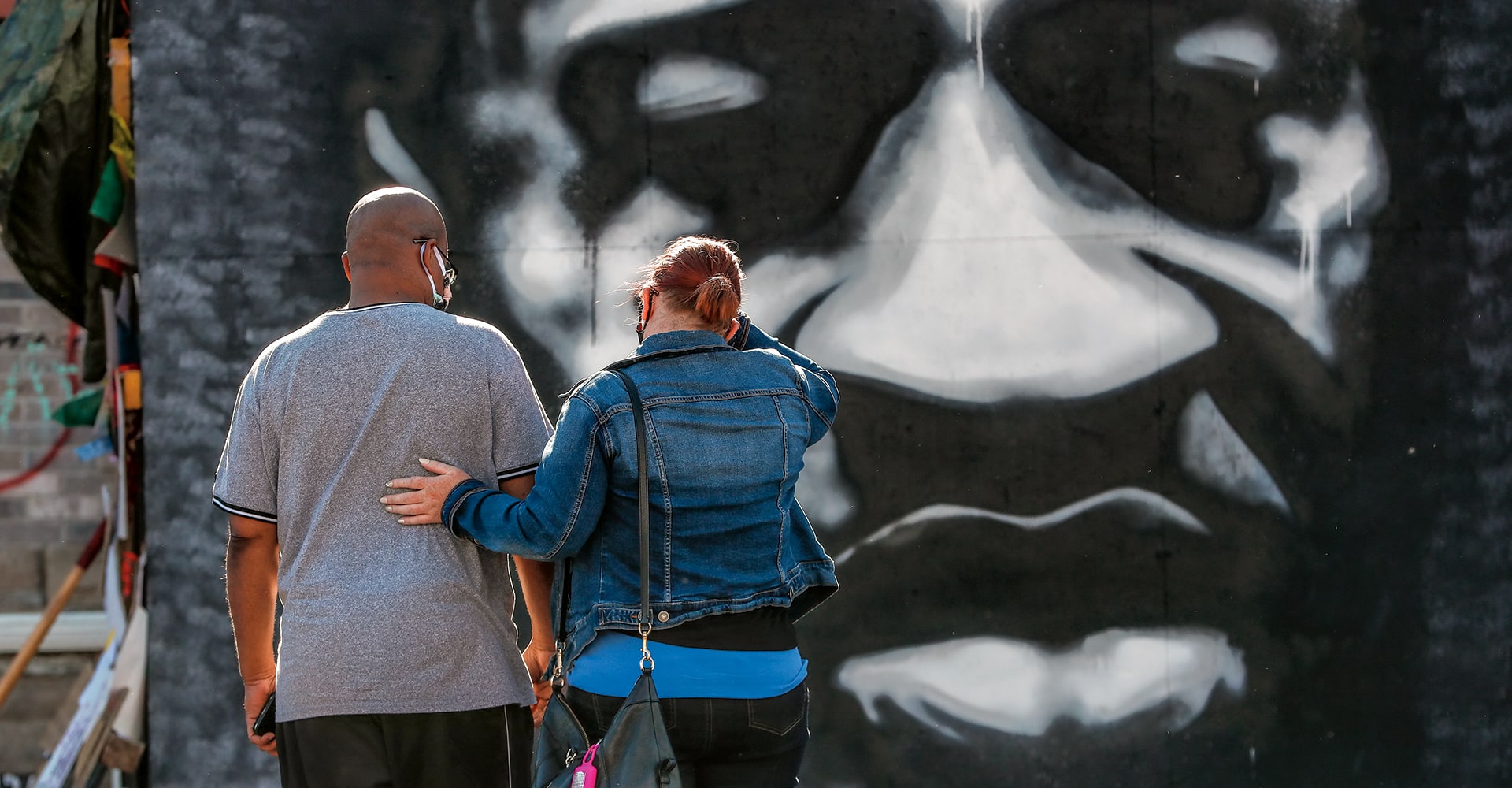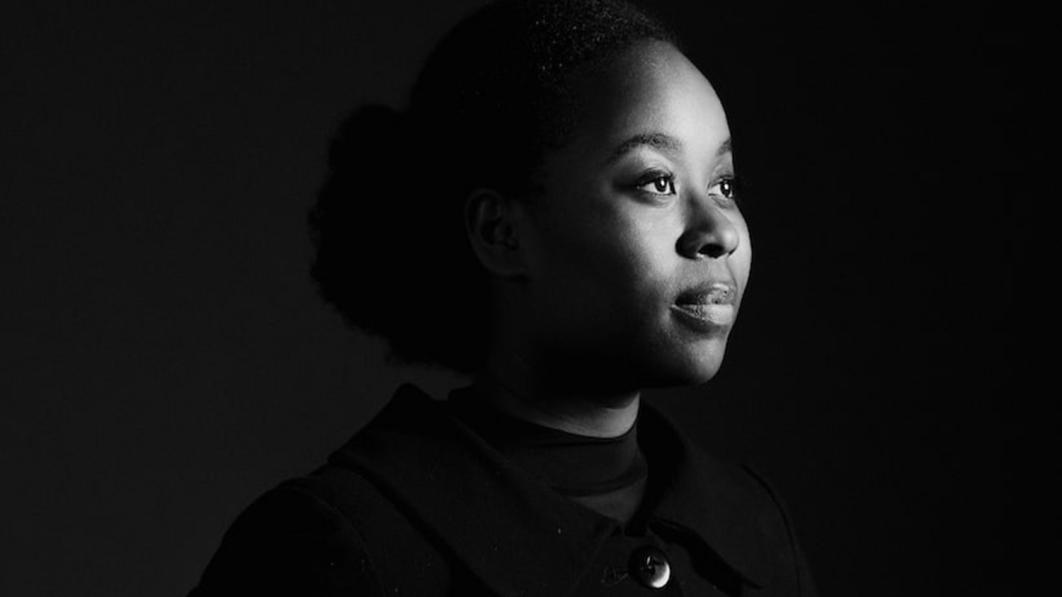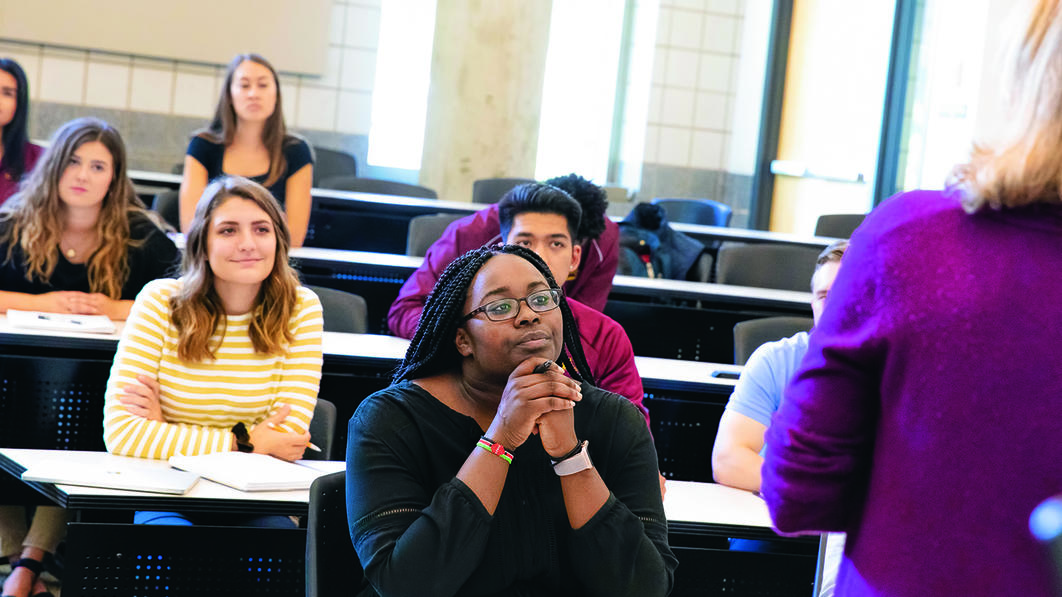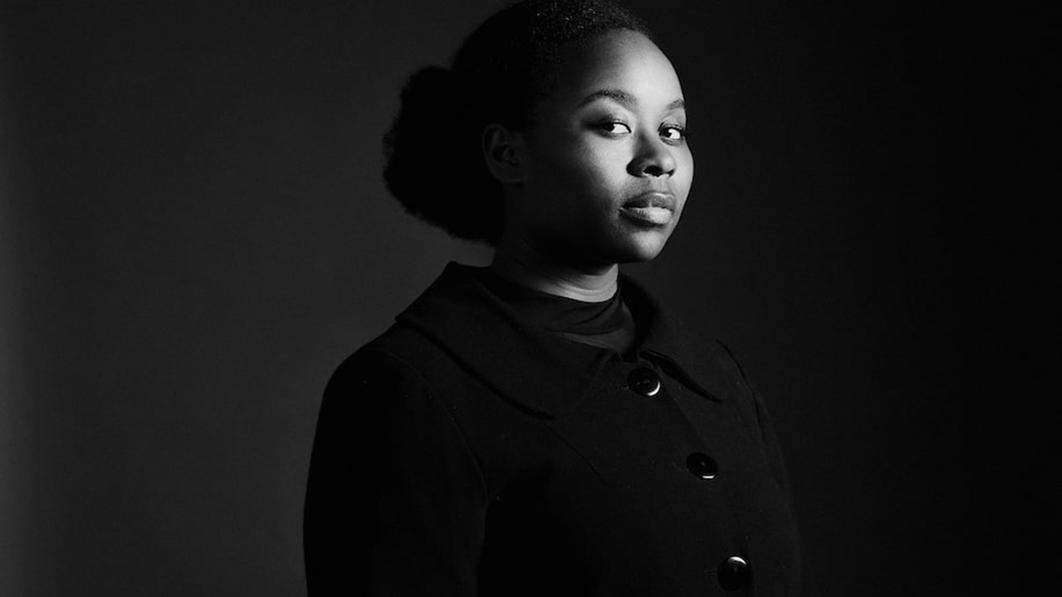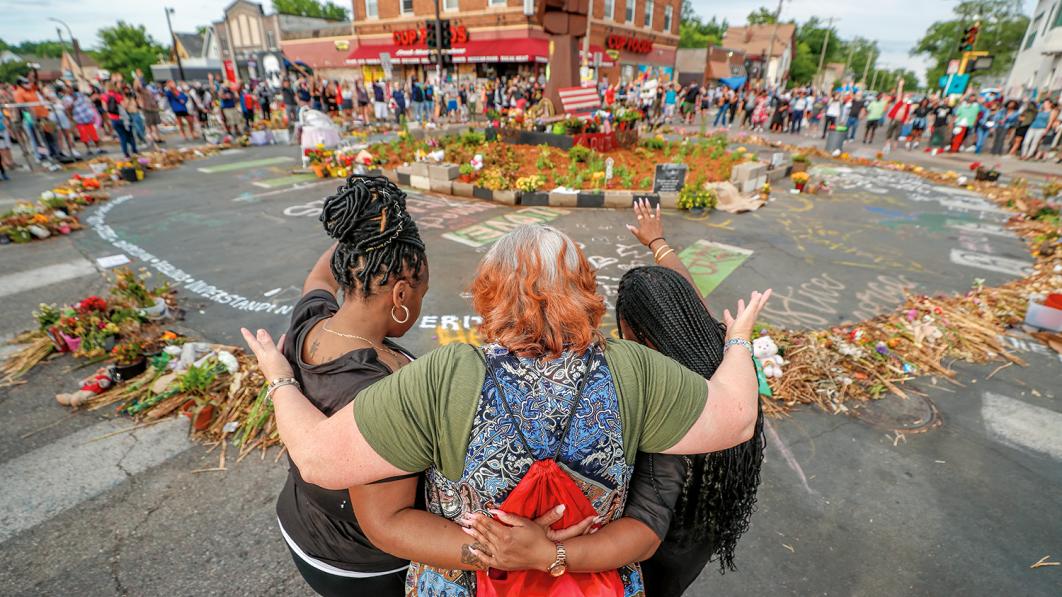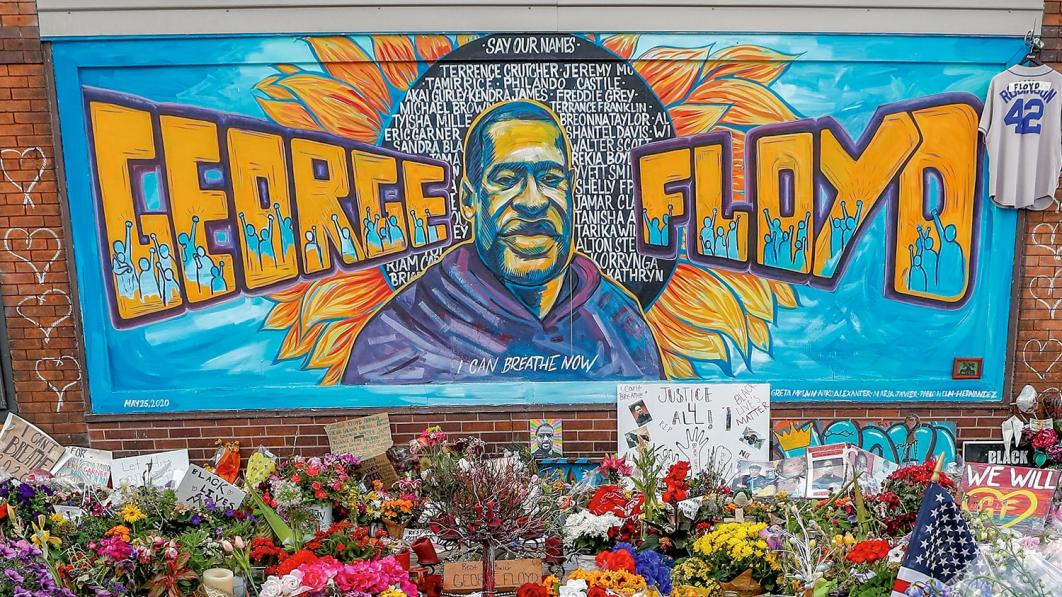
The Voice
Tuesday, September 22, 2020
AS TOLD TO NICOLE NORFLEET
Jael Kerandi (’21 BSB), former student body president and Carlson School student, used her seat at the table to lead fellow students through COVID-19 and the murder of George Floyd.
I avoided watching the video. I knew trauma awaited. I can still hear it in my head: When George Floyd called out for his mama, he called out to all mothers.
My family moved to the United States from Nairobi, Kenya, when I was 18 months old. It was an opportunity for my father to give his children a chance at a better life—the “American dream.” The chance to take advantage of the opportunities that would alter your life. My parents invested in our learning and often reminded us of the importance of our education and told us to never forget who we were.
“It could have been me. It could have been my brother. It could have been my sister...”
But the life my parents wanted us to have here looked different based on the color of our skin. Philando Castile and Jamar Clark were killed when I was in high school, but I vividly remember the murder of Trayvon Martin. I was young. I remember being in the car, hearing the verdict on the radio. I was stunned and so confused: How could the verdict go any other way? From that age, I just remember thinking: What can I do? I nearly felt helpless.
But the murder of George Floyd, this was different. It felt different. I was exhausted, we were exhausted by the injustice that plagued our community. It was my time to do something, to stand against the injustice that I had seen for far too long. I knew that I could do something. At that moment, I felt empowered. I stood on the shoulders of many, and through that and the courage given to me by God, I could advocate for justice, for what was right.
I decided to write a letter to the Gabel administration demanding they sever ties with the Minneapolis Police Department. And I wanted people reading it to know that a Black woman wrote this letter. A Black woman who was tired of seeing her people killed at the hands of law enforcement. A Black woman supporting the 6 percent of Black students on campus.
My request was the bare minimum, knowing that “it is our job as an institution to exert whatever pressure we can to keep our students safe and demand justice in our city and state.” The policies the University held on Diversity and Inclusion had to be in alignment with their actions. The murderous actions of the Minneapolis police department were not.
I decided to write a letter to the Gabel administration demanding they sever ties with the Minneapolis Police Department. And I wanted people reading it to know that a Black woman wrote this letter. A Black woman who was tired of seeing her people killed at the hands of law enforcement. A Black woman supporting the 6 percent of Black students on campus.
After working with people I am close with on the completion of the letter, I attended the first protest on Chicago Avenue. What I saw only solidified the need for justice. That evening, during our executive board meeting, we voted on the approval of the letter. It was unanimous. There was no time to wait.
This didn’t start on May 26, 2020.
I started out in student government as an intern my first year, in a program designed to get students involved in advocacy. As the chair of the athletics subcommittee on the Sexual Assault Task Force, I advocated for student athletes, working very closely with then-MSA President Trish Palermo to modify the sexual misconduct policy. In my second year, I served as MSA Ranking Representative to the Board of Regents. I advocated to the Board of Regents in regards to non-resident, non-reciprocity tuition and the support of Black students on our campus. At the end of that year, I ran for vice president and I was elected to serve that fall. President Gabel and I started our terms on the same day, July 1, 2019. The next semester, our president resigned and I had the chance to represent over 30,000 students as student body president. I served in that capacity until July 2020.
Throughout my involvement with student government, starting my freshman year, we had been long advocating for the support of Black students on our campus. This included our Reclaim & Rename initiative to remove the Coffman name from our student union, as well as renaming a few other buildings on campus, because the history continues to marginalize many of our students. It has resulted in larger, broader conversations around University history and diversity and inclusion. I continued to advocate for students all throughout my collegiate tenure, including trying to improve relationships with the University police department.
Then the pandemic hit. I was navigating all of the logistics that came along with representing students in a time of unprecedented crisis, while supporting my own academic work that comes with a 19-credit semester. I also was still working my job as a Carlson Ambassador and working in the leadership minor. It was challenging, but the village that raised me is the same village that would sustain me. My joy was etched in the fact that students trusted student government in a way I hadn’t seen before. And this was the realization of my dreams of running for student government, way back in fifth grade, on up through high school. I was so humbled by the trust people were instilling in me and our organization to get things done. They trusted my leadership, discernment, and direction. When students trust you to do the work, it fills your cup.
Student leaders and student government have access to administration, and their single most important role is to advocate for students who elected them. That advocacy and being able to elevate voices was really important to me. To hold office is a privilege I do not take lightly, and even beyond that representation matters. When you get to the table, you have to use your voice. Our lives depend on it.
This was so much bigger than me. To me, this decision was for the young Black girl in third grade who will one day come to this institution— and my hope is that one day she will experience an institution that supports her progression and success. Her reality should be different.
Somebody texted me: “Jael, Jael, Jael.”
I was in shock when I saw President Gabel’s response. I broke down and cried. This was so much bigger than me. To me, this decision was for the young Black girl in third grade who will one day come to this institution—and my hope is that one day she will experience an institution that supports her progression and success. Her reality should be different.
I still haven’t heard from Chief Clark, the University police chief. He never replied to an email, accepted a meeting request, or answered a question. Never even an acknowledgment. But I will continue to ensure that as an institution that values the needs of tuition-paying students, the safety of Black students will be considered in the totality of campus safety.
There were so many people who didn’t believe in this, but I had no interest in listening to the naysayers. I had faith this was possible. The beauty of this was the domino effect: Student body presidents nationwide started reaching out to me, because we had provided a foothold. It empowered student advocates to use their voice—the role we should have—to lead policy changes and social justice at universities. We must ensure we don’t get stuck in the creation of a task force or publishing blanket statements. The momentum that the letter created inspires me. We can make change, it can happen quickly, and it will be meaningful. Universities are made up of a collection of academics with a plethora of knowledge, intellect, and perspective. It is time we use it to better the lives of the very students they serve.
In a perfect world, anti-racism will be taught early in the home and in the primary sector (K-12) of education. So the leaders we raise will be prepared to live in a world where equality and equity are recognized in their entirety. So it doesn’t happen here.
This fight is not over. We won’t let it. Every time I think I’m getting tired, I have a conversation with someone that reminds me, no, we’re still here. We aren’t done yet. Every time I think protests have died down, I see people are still out there and still doing this work. Every time I think about taking a break, I remember the many people who tell me, “WE got this.” The people who have our back for us is us.
My village has raised me and held me up. Since day one, my parents and siblings have been extremely supportive. My mom called me Queen Esther. She said, “God wanted you to be in this position, at such a time as this. There’s a reason you were put here.” When you have that to stand on, you have nothing to fear. One day, we will win.
